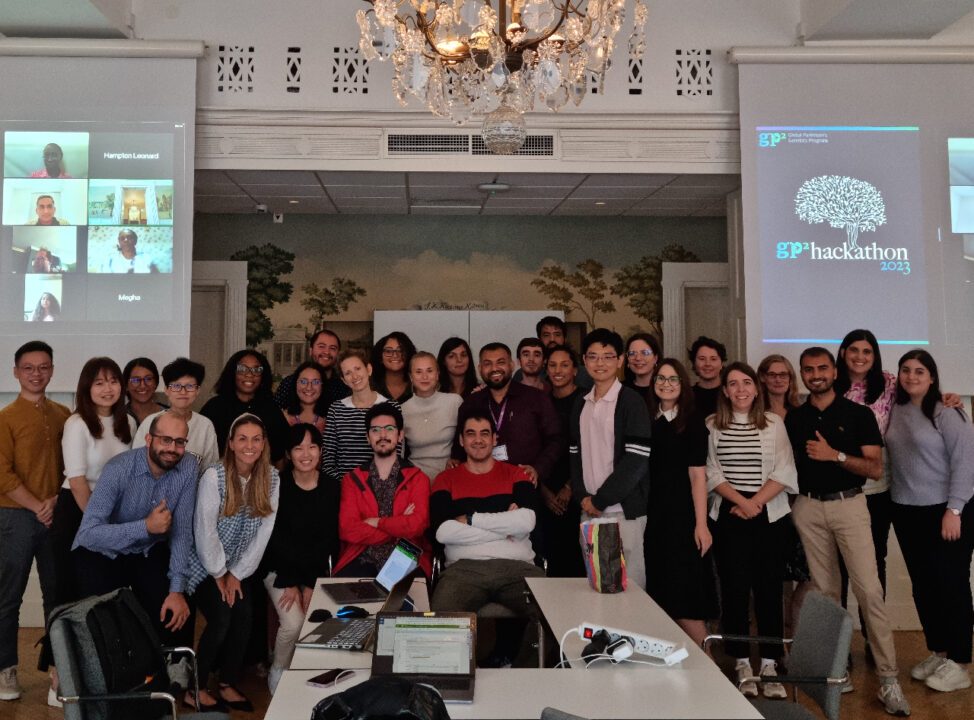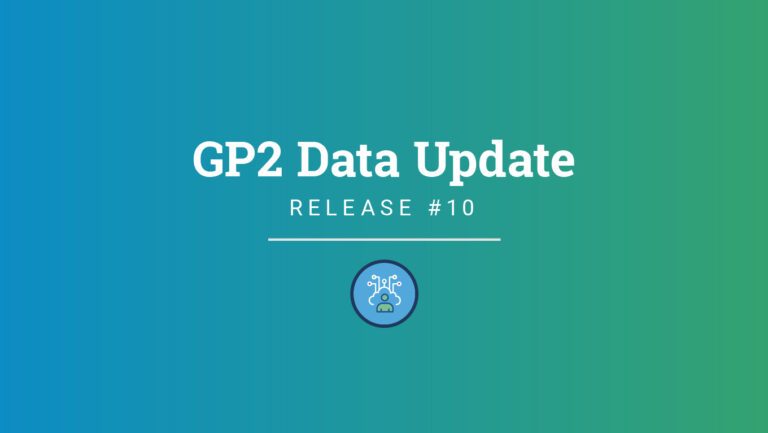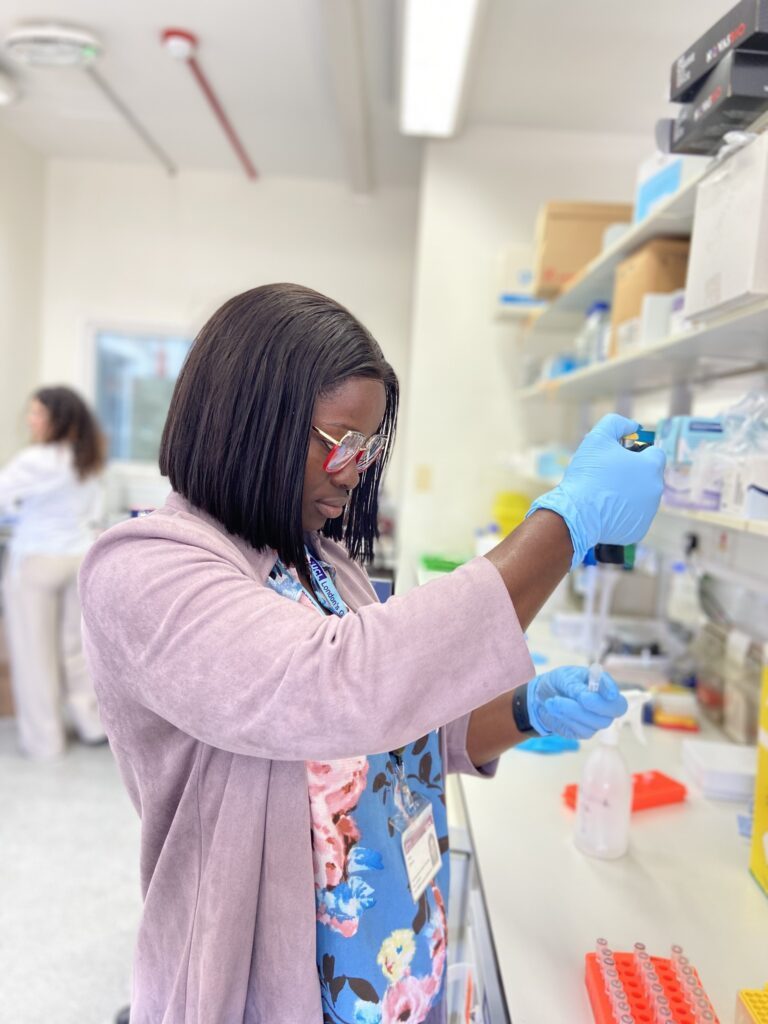Hackathons are fast-paced events where attendees work in teams to develop innovative solutions to specific challenges or problems. These events have become increasingly popular in the scientific community, providing networking opportunities and facilitating skill building in different analysis techniques. Hackathons have proven to be highly effective for the Global Parkinson’s Genetics Program (GP2) community as well, bringing together GP2 members from around the world to collaborate on challenges related to Parkinson’s Disease (PD) and leverage the diverse expertise within the initiative. One example of this was the 2021 IPDGC/GP2 Virtual Hackathon, during which teams developed data analysis tools and resources tailored for PD research.
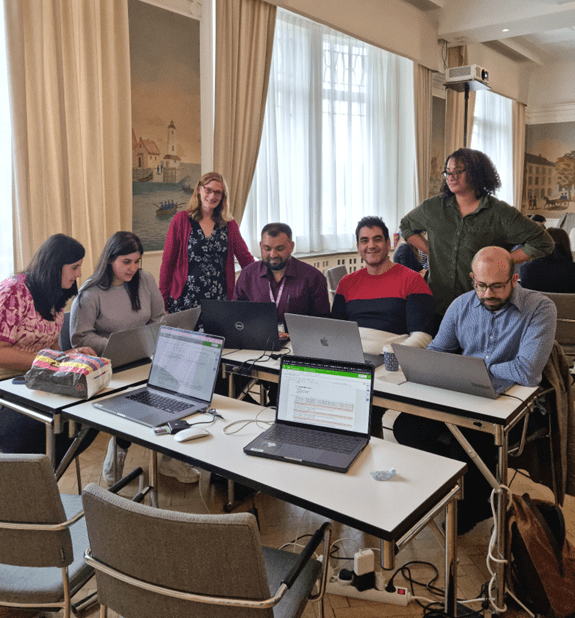 At the end of the August 2023 GP2 Annual Investigators meeting in Copenhagen, 32 GP2 trainees and organizers took a train to Malmö, Sweden, where they would spend the next two days tackling different projects focused on Parkinson’s Disease genetics. An additional 16 attendees joined virtually from around the world. In total, we had 48 participants who joined us from 23 different countries.
At the end of the August 2023 GP2 Annual Investigators meeting in Copenhagen, 32 GP2 trainees and organizers took a train to Malmö, Sweden, where they would spend the next two days tackling different projects focused on Parkinson’s Disease genetics. An additional 16 attendees joined virtually from around the world. In total, we had 48 participants who joined us from 23 different countries.
Attendees were split into eight teams based on their interest, level of expertise, and timezone: five in-person teams and three teams who joined virtually. Each project was designed to produce analysis outcomes with the GP2 data that is currently available. Each project was conducted on Terra, providing opportunities to learn how to interact with and do an analysis directly on the platform that hosts both the GP2 and Accelerating Medicines Partnership in Parkinson’s Disease (AMP PD) data. The eight projects were approved beforehand by the GP2 Project Proposal Working Group and are as follows:
- Single Gene Assessment (ABCB1)
- Single Gene Assessment (COMT)
- Screening GBA1 variants across ancestries with WGS data
- Pathogenic PD Variant Carriers
- Single Gene Assessment (DNAJC13)
- Haplotype Analysis (MAPT)
- scRNA-seq Analysis
- Runs of Homozygosity
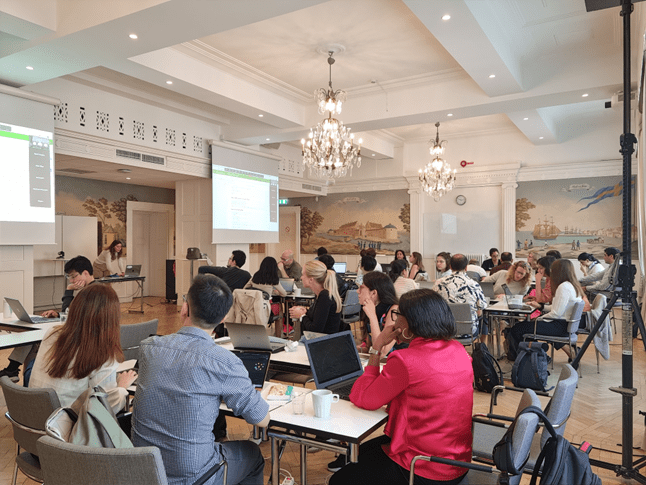 Throughout the two-day event, teams got to know each other and worked together to prepare the data and code they needed for each project. At the end of each day, every team gave a short update on progress and any potential challenges they encountered. While two days is not long enough to finish an entire analysis project, each team made substantial progress in the short timeframe. The 2023 GP2 Hackathon has since concluded but the teams will continue to work on their projects, aiming to publish the results as brief reports, letters to the editor, or whatever is the most appropriate format for their findings.
Throughout the two-day event, teams got to know each other and worked together to prepare the data and code they needed for each project. At the end of each day, every team gave a short update on progress and any potential challenges they encountered. While two days is not long enough to finish an entire analysis project, each team made substantial progress in the short timeframe. The 2023 GP2 Hackathon has since concluded but the teams will continue to work on their projects, aiming to publish the results as brief reports, letters to the editor, or whatever is the most appropriate format for their findings.
In the future, we plan on hosting additional in-person and virtual hackathons. Be on the lookout for more events like this and how to get involved!

